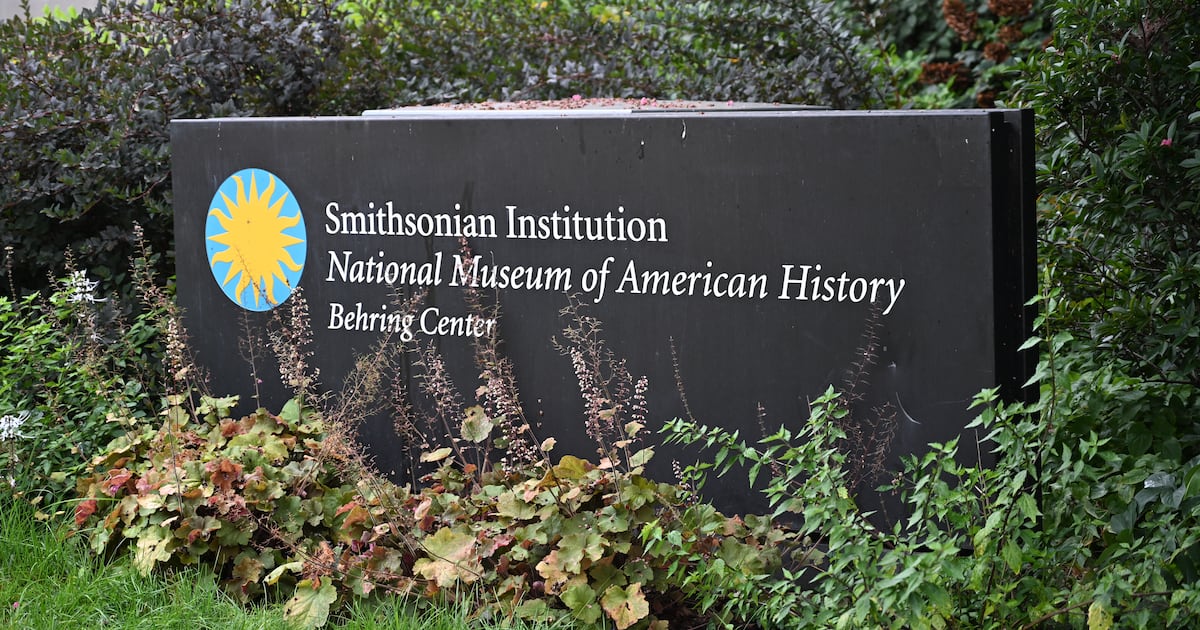World
Trump Criticizes Smithsonian’s Slavery Focus, Sparks Outrage

In recent comments, former U.S. President Donald Trump expressed his discontent with the Smithsonian Institution, specifically regarding its focus on the history of slavery in America. During an appearance on Fox & Friends, he lamented that the museum emphasizes the negative aspects of the nation’s past rather than celebrating achievements. Trump’s remarks have ignited criticism over his perceived whitewashing of a painful chapter in American history.
Reflecting on his childhood experiences, Maureen Dowd, a columnist for The New York Times, recounted a lesson from her grade-school days at Nativity School, where she learned that there is “no silver lining to slavery.” Dowd’s personal anecdote served as a stark contrast to Trump’s comments, highlighting the moral implications of downplaying the impact of slavery in America.
Trump’s remarks came as he claimed that he hopes to broker peace between Russia and Ukraine in hopes of gaining favor in the afterlife. “I want to try and get to heaven if possible,” he stated. This comment, coupled with his recent unveiling of a painting of himself in the West Wing, further emphasizes his controversial self-image amid widespread discontent regarding his presidency.
The former president’s tirade against the Smithsonian included a declaration that it is “OUT OF CONTROL,” criticizing its portrayal of slavery as detrimental to the nation’s narrative. He lamented that the museum fails to focus on “Success, brightness, [and] the future,” and declared that he has instructed his attorneys to investigate the institution, similar to efforts made against colleges and universities.
Critics have reacted strongly to Trump’s statements. Presidential historian Douglas Brinkley described his criticism of the Smithsonian as “the epitome of dumbness,” underscoring the importance of confronting the reality of slavery and its enduring legacy in American society. He pointed out that the Civil War, fought over issues related to slavery, resulted in the deaths of approximately 700,000 Americans.
Moreover, Trump’s approach to historical narratives raises concerns about his understanding of the past. His tendency to distort facts, such as insisting the 2020 election was stolen, contributes to a broader pattern of revisionism. Dowd noted that Trump’s desire to minimize discussions around slavery reflects a profound disconnect from the historical significance of this topic.
Throughout his presidency, Trump has made efforts to restore Confederate symbols and downplay the contributions of significant Black figures in American history. His actions and comments have drawn parallels to a worldview that seeks to sanitize the complexities of America’s past, which could have serious implications for how history is taught and understood.
As the discourse surrounding Trump’s remarks continues, the conversation around the legacy of slavery and its representation in institutions like the Smithsonian remains critical. The ongoing debate highlights the need for a comprehensive understanding of history that honors both the struggles and achievements of all Americans.
In a time when the nation grapples with its past, Trump’s comments serve as a reminder of the challenges that lie ahead in addressing historical injustices and fostering a more inclusive narrative.
-

 Top Stories3 months ago
Top Stories3 months agoTributes Surge for 9-Year-Old Leon Briody After Cancer Battle
-

 Entertainment4 months ago
Entertainment4 months agoAimee Osbourne Joins Family for Emotional Tribute to Ozzy
-

 Politics4 months ago
Politics4 months agoDanny Healy-Rae Considers Complaint After Altercation with Garda
-

 Top Stories4 months ago
Top Stories4 months agoIreland Enjoys Summer Heat as Hurricane Erin Approaches Atlantic
-

 World5 months ago
World5 months agoHawaii Commemorates 80 Years Since Hiroshima Bombing with Ceremony
-

 Top Stories3 months ago
Top Stories3 months agoNewcastle West Woman Patricia Foley Found Safe After Urgent Search
-

 Top Stories5 months ago
Top Stories5 months agoFianna Fáil TDs Urgently Consider Maire Geoghegan-Quinn for Presidency
-

 World5 months ago
World5 months agoCouple Convicted of Murdering Two-Year-Old Grandson in Wales
-

 World5 months ago
World5 months agoGaza Aid Distribution Tragedy: 20 Killed Amid Ongoing Violence
-

 World5 months ago
World5 months agoAristocrat Constance Marten and Partner Convicted of Infant Murder
-

 Top Stories4 months ago
Top Stories4 months agoClimbing Errigal: A Must-Do Summer Adventure in Donegal
-

 Top Stories4 months ago
Top Stories4 months agoHike Donegal’s Errigal Mountain NOW for Unforgettable Summer Views









